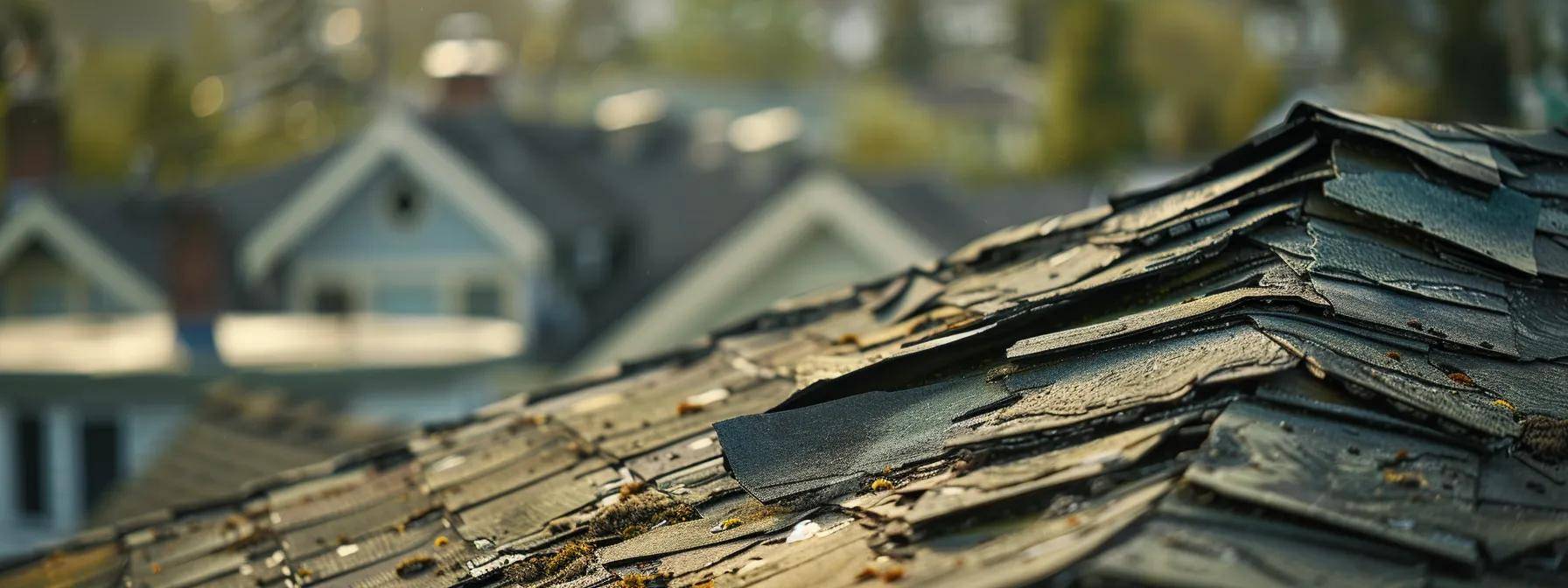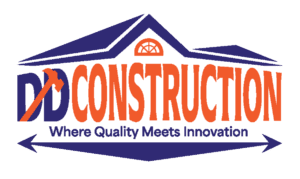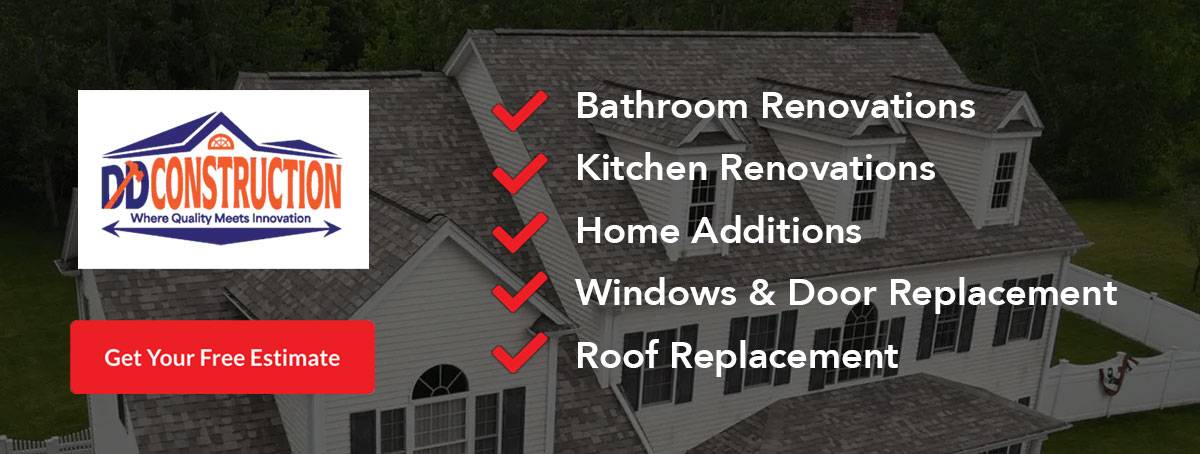Roof Replacement vs. Repair: What Massachusetts Homeowners Need to Know About Choosing the Right Roof Contractor
Introduction Roof maintenance is a critical aspect of home improvement, especially for Massachusetts homeowners who face changing weather conditions and strict local codes. For expert guidance and trusted service, visit ddconstructionma.com. With an aging housing stock and the harsh New England climate—from snowy, icy winters to hot, rainy summers—the roof is often the most vulnerable part of the home. Deciding whether to repair or replace a roof is not a decision to be taken lightly. Homeowners must understand the complexities of roof damage, why some repairs are only temporary, and the benefits of investing in a full roof replacement when necessary.
This article offers comprehensive guidance on common roof problems, the cost implications of repair versus replacement, the impact of roofing materials, and tips for selecting a reliable contractor in Massachusetts. By evaluating factors such as the type of roofing material (asphalt shingle, slate, metal, or tile), contractor credentials, and warranty offerings, homeowners can ensure a quality job with lasting results. This guidance is particularly valuable for those seeking high-quality home improvement services near Rehoboth, MA, and surrounding areas. Issues such as damaged flashing, worn-out shingles, and poor insulation can compromise home safety, making it crucial to determine whether a repair is sufficient or a full replacement is needed.
In the following sections, we explore common questions Massachusetts homeowners ask regarding roof repair and replacement—including cost, techniques, weather challenges, financing options, warranty considerations, and local building codes and permits—to help homeowners assess both immediate needs and long-term benefits.
Transitioning into the main content, each section below addresses a distinct aspect of choosing between roof repair and replacement.
When Should Massachusetts Homeowners Choose Roof Repair Over Replacement?
Homeowners should choose roof repair over complete replacement when damage is localized, the overall roof structure remains sound, and repair costs are significantly lower than a full replacement. The decision generally depends on the severity and spread of the damage and the quality of the existing material. When only a few shingles are missing or minor wear appears around flashing, repairs can restore roof functionality without the disruption and higher cost of a full replacement.
What Are the Common Roof Problems That Require Repair?
Typical repair issues include minor leaks, small punctures, broken or missing shingles, damaged flashing, and isolated areas of rot or mold. In Massachusetts, temperature fluctuations can cause shingles to crack or become brittle. Minor leaks may result from deteriorated sealants around chimneys or skylights. Such issues are usually confined to a small area that responds well to patching, re-caulking, or re-securing loose materials. For example, if a storm dislodges a few shingles, a contractor may simply reattach or replace those sections. These repairs are effective, cost-efficient, and can extend the roof’s lifespan by several years if performed promptly. Homeowners should consider the frequency of these issues to determine if patch repairs will continue to be effective over time.
How Does Roof Repair Save Money Compared to Replacement?
Roof repair targets only the damaged portions of the roof, reducing material and labor costs and minimizing disruptions to the home. By choosing repair, homeowners postpone the higher expense of a full replacement until it is absolutely necessary. Repairs also typically require less time, causing less inconvenience. In addition, repairing a roof can prevent further deterioration by sealing leaks and strengthening weak areas, thus maintaining the roof’s integrity. Routine maintenance and timely repairs can delay the need for a full replacement by 5 to 10 years, making repair a sound short-term financial strategy.
What Are the Typical Roof Repair Techniques Used in Massachusetts?
Common repair techniques include patching, re-shingling, sealant replacement, and installing new underlayment or flashing. Patching involves applying roofing cement or sealant to cover small holes and cracks. Re-shingling replaces damaged or missing shingles to seamlessly blend with the rest of the roof. Replacing sealants and flashing around chimneys, skylights, and vents is crucial where water penetration is likely. In some cases, contractors may also reinforce the roof deck or insulation to prevent damage from ice dams and strong winds. These techniques are chosen based on the type and extent of damage and are executed to withstand Massachusetts’ challenging weather conditions.
How Do Weather Conditions in Massachusetts Affect Roof Repair Decisions?
Massachusetts weather greatly influences roof repair decisions. The region’s harsh winters—with heavy snow, ice, and freeze-thaw cycles—accelerate roof deterioration. Ice dams can form at the roof’s edge during winter, causing water to back up under shingles and seep into the structure. In spring, heavy rains and in summer, high temperatures, further stress roofing materials and can lead to unexpected leaks or minor structural issues. As a result, repairs in Massachusetts must address both current damage and anticipate future stressors. Contractors often incorporate improved insulation and ventilation into repair work to help the roof endure seasonal fluctuations and minimize the likelihood of future damage.
What Are the Signs That Indicate a Roof Replacement Is Necessary?

A roof replacement becomes necessary when a roof reaches the end of its service life or sustains extensive damage. Signs indicating the need for replacement include persistent, widespread leaks; extensive shingle damage; a sagging roof structure; and rotting underlayment or wood. Homeowners should also note declining energy efficiency and rising utility bills, which may signal failing insulation. If previous repairs have been repeatedly needed with only temporary success, this often indicates that a complete roof replacement is more cost-effective in the long run.
How Does Roof Age Influence the Need for Replacement?
Roof age is a critical factor in deciding between repair and replacement. In Massachusetts, asphalt shingle roofs typically last between 20 and 25 years. When a roof nears this age, it becomes more susceptible to leaks, wind damage, and shingle granule loss. Aging roofs usually develop widespread issues that simple patch repairs cannot resolve, making a full replacement necessary for ensuring safety and longevity. Older roofs also tend to have reduced energy efficiency as insulation and reflective properties degrade over time. Frequent minor repairs over several years are often a sign that the entire roofing system is failing.
What Types of Damage Require Full Roof Replacement?
Full roof replacement is necessary when damage is extensive. This includes severe water damage, widespread shingle deterioration, significant hail impact, structural sagging, and major damage to the roof deck. If leaks continue despite multiple repairs or if damage is widespread rather than localized, replacement is essential. Structural issues like bending or sagging indicate that the roof’s support system has been compromised. Additionally, when rot and mold have penetrated extensively into the underlayment and wooden structures, patch repairs are no longer sufficient, and a complete replacement is needed.
How Long Does a Roof Replacement Take in Massachusetts?
The time required for a roof replacement in Massachusetts depends on the roof’s size, installation complexity, weather conditions, and contractor efficiency. Generally, a standard residential roof replacement takes between 3 and 7 days. Larger or more complex roofs might require additional time, especially when multiple layers need removal or when extensive structural repairs are needed before installation. Weather delays, particularly in winter or during rainy seasons, may also affect the timeline. Homeowners should discuss a realistic project timeline with their contractor, ensuring that all necessary preparations and contingencies are addressed.
What Is the Roof Replacement Process Step-by-Step?
The roof replacement process typically follows these steps:
- Removal – The existing roof (old shingles, underlayment, and flashing) is completely removed, and debris is cleared.
- Repair – Underlying structural damages or deteriorated roofing materials, such as decking, are repaired or replaced to create a solid base.
- Installation – New underlayment is applied, followed by precise installation of new shingles or other roofing materials.
- Finishing – Elements such as flashing, ventilation components, and sealing are installed carefully to ensure water resistance.
- Inspection – A final inspection confirms that the work meets local building codes and standards.
This structured process ensures that the new roof looks modern and performs reliably under Massachusetts weather conditions.
How Do Roofing Materials Impact Roof Replacement and Repair Choices in Massachusetts?
The choice of roofing materials has a significant impact on both replacement and repair decisions. Different materials offer varying lifespans, maintenance demands, resistance to extreme weather, and aesthetic appeal. In Massachusetts, where the climate ranges from bitterly cold winters to humid summers, material durability and performance are crucial factors.
What Are the Pros and Cons of Asphalt Shingles for Massachusetts Homes?
Asphalt shingles are the most commonly used roofing material in Massachusetts because they are affordable, easy to install, and widely available. The advantages include cost-effectiveness, a wide range of colors and styles, and relatively low installation costs. Properly installed asphalt shingles offer decent resistance to wind and rain. However, they have a shorter lifespan than materials like metal or slate and are more susceptible to damage from extreme temperatures. Over time, asphalt shingles can degrade and lose their protective granules, which can lead to reduced energy efficiency and the need for repeated minor repairs.
Why Is Metal Roofing Growing in Popularity in Massachusetts?
Metal roofing is increasingly popular in Massachusetts due to its exceptional durability, energy efficiency, and modern look. Metal roofs typically last 40 to 70 years, far exceeding the lifespan of asphalt shingles. They are highly resistant to heavy snow, ice, and strong winds, and their reflective nature can reduce cooling costs. Although metal roofs demand a higher initial investment, reduced repair needs and lower energy bills often make them a cost-effective option in the long run. Additionally, metal roofs are environmentally friendly because they are recyclable, making them an attractive choice for eco-conscious homeowners.
How Do Tile and Flat Roofing Compare for Local Weather Conditions?
Tile roofs, made from clay or concrete, are favored for their longevity and visual appeal. They perform well under high temperatures and heavy rainfall but require a strong supporting structure due to their weight. In northern climates like Massachusetts, tile roofs can be susceptible to freeze-thaw damage. In contrast, flat roofs are mostly seen in modern commercial designs. Flat roofs require specialized materials and careful maintenance to prevent water pooling and leaks. Although many Massachusetts homeowners favor pitched roofs for effective water runoff, flat roofs may be suitable for additions or modern home designs if proper waterproofing and drainage systems are in place.
Which Roofing Materials Offer the Best Longevity and Warranty?
For long-lasting performance and warranty protection in Massachusetts, materials such as metal, slate, and high-quality synthetic options are preferred. Metal roofs come with warranties that can extend up to 50 years, and slate roofs, though more expensive, offer exceptional durability and long warranty terms. High-end synthetic materials can mimic natural products with enhanced durability and warranty coverage that competes with traditional materials. Although the initial cost may be higher, these materials often result in lower lifetime maintenance and repair expenses, providing better long-term value.
What Are the Typical Costs of Roof Replacement and Repair in Massachusetts?

Cost is a key factor when deciding between roof repair and replacement. In Massachusetts, overall costs depend on materials, labor, permits, and the extent of the work required. While roof replacement is more expensive than repair, it can lead to improved energy efficiency, reduced future disruptions, and increased home value. Understanding the cost breakdown is essential for making a sound financial decision.
How Are Roofing Costs Broken Down: Materials, Labor, and Permits?
Roofing project costs generally include three main components: – Materials: Costs for shingles, underlayment, flashing, and insulation. – Labor: Costs for the installation or repair work, which vary with roof complexity. – Permits: Fees mandated by local authorities to ensure compliance with current codes.
For instance, a minor roof repair may cost a few hundred dollars, while a full replacement can easily run into tens of thousands depending on the area, chosen materials, and contractor fees.
What Is the Average Cost Range for Roof Replacement in Massachusetts?
A complete roof replacement for a standard residential home using asphalt shingles typically ranges between $7,000 and $20,000 in Massachusetts. However, for larger, more complex roofs or when using premium materials like metal or slate, costs can exceed $30,000. Homeowners are advised to obtain several quotes from reliable roofing companies to secure competitive pricing and understand exactly what is included.
How Much Does Emergency Roof Repair Usually Cost?
Emergency roof repairs—often required after storms or sudden damage—can be significantly more expensive than routine repairs. In Massachusetts, emergency repairs may cost between $1,000 and over $5,000, depending on the urgency and severity. These costs typically include premium charges for expedited service along with labor and materials. Homeowners should ideally set aside a contingency budget for such emergencies.
Are There Financing or Warranty Options Available for Massachusetts Homeowners?
Many Massachusetts roofing contractors offer financing options with low-interest rates and flexible payment plans to help manage the expense of roof replacements or repairs. In addition, reputable companies provide comprehensive warranties covering both materials and workmanship. These warranties can range from 10 to 50 years, offering peace of mind in the event of defects or premature failures. Homeowners should discuss available financing and warranty plans with their contractor to ensure both immediate and future costs are well-managed.
Table: Cost Breakdown for Roofing Projects in Massachusetts
| Component | Cost Range | Description | Typical Impact |
|---|---|---|---|
| Materials | $2,000 – $10,000+ | Includes shingles, underlayment, flashing, insulation | Varies by product quality |
| Labor | $3,000 – $8,000 | Installation, removal of old materials, final finishes | Based on roof complexity |
| Permits and Inspections | $500 – $2,000 | Fees for local municipal permits and inspections | Ensures code compliance |
| Emergency Repairs | $1,000 – $5,000+ | Expedited services for unforeseen damage | Premium service charges |
| Total Project Cost | $7,000 – $30,000+ | Overall cost for full roof replacement or extensive repairs | Dependent on roof size and material |
This table offers a concise overview of the cost factors that homeowners should consider when planning a roofing project.
How Can Massachusetts Homeowners Find and Choose a Reliable Roof Contractor?
Selecting a reliable roof contractor is critical for successful repair or replacement projects in Massachusetts. Given strict building codes and extreme weather conditions, hiring a contractor with proven local expertise is key. Homeowners should use a systematic approach, including research, verifying credentials, and asking the right questions about prior work and warranties.
What Questions Should You Ask a Roofing Contractor Before Hiring?
Key questions to ask include: – How long have you been serving Massachusetts? – Can you provide references or examples of similar projects? – What warranties do you offer for materials and workmanship? – How do you handle unexpected repairs during the project? – What is your estimated timeline for completion? – Can you provide proof of licensing, insurance, and bond?
These questions help gauge the contractor’s experience and ensure transparent communication and contract details.
How Do You Verify a Contractor’s Credentials and Licensing in Massachusetts?
Verification involves asking for copies of the contractor’s state license, proof of insurance, and bonding documents. Homeowners should confirm these documents through official Massachusetts state websites or local building departments. Additionally, checking online reviews and obtaining references from past customers further confirms the contractor’s reliability and expertise.
Why Is Local Expertise Important When Choosing a Roofing Contractor?
Local expertise is essential because Massachusetts has unique weather challenges and building codes. Contractors familiar with local conditions know the best materials to withstand heavy snow, ice dams, and strong winds. They understand local permit processes, have relationships with reliable suppliers, and can provide personalized service with timely follow-up on warranties and repairs.
How Can Customer Reviews and Testimonials Help in Contractor Selection?
Customer reviews and testimonials offer real feedback on the contractor’s reliability, workmanship, and customer service. Platforms like the Better Business Bureau, Angie’s List, and local community forums provide insights into punctuality, attention to detail, and problem resolution. Such reviews help homeowners identify contractors with a proven track record of quality work.
Table: Key Factors for Evaluating Massachusetts Roofing Contractors
| Evaluation Factor | Key Considerations | Impact on Decision | Verification Methods |
|---|---|---|---|
| Licensing and Credentials | Must be state-licensed and insured | Ensures compliance | Verify documentation online |
| Experience | Years in business, local projects | Indicates reliability | Check references and portfolios |
| Warranty Coverage | Offers materials and workmanship guarantees | Provides peace of mind | Review contract details |
| Customer Reviews | Positive testimonials, timely service | Reflects overall quality | Online review platforms, BBB |
| Detailed Estimates | Transparent cost breakdown | Prevents unexpected expenses | Compare multiple quotes |
| Communication | Responds clearly and promptly | Essential for project success | Initial consultations, follow-up calls |
| Local Knowledge | Understanding Massachusetts codes | Critical for quality and compliance | Interview contractor, check local portfolio |
This table summarizes the key factors that should be considered when selecting a contractor.
What Massachusetts Building Codes and Permits Affect Roof Replacement and Repair?

Massachusetts has some of the strictest building codes and permit requirements in New England to ensure safety, energy efficiency, and durability. These regulations affect every aspect of roof repair and replacement, from material selection to installation methods.
What Are the Key Massachusetts Building Codes for Residential Roofing?
The Massachusetts State Building Code governs residential roofing projects. It outlines specifications for material performance, structural integrity, wind resistance, and fire safety. For example, the code specifies minimum slopes for various roofing types and requires proper installation of underlayment and flashing. Compliance with these codes ensures that the roof meets safety and energy efficiency standards. Homeowners should confirm that their contractors adhere to these local standards.
When Are Permits Required for Roof Replacement or Repair?
Permits are required when roof work involves significant structural changes, complete tear-offs, or alterations that affect load-bearing elements. Even extensive repair projects may require permits to ensure that updated building standards are met. Permits serve as important documentation for insurance and future property transactions. It is essential that contractors secure all necessary permits before work begins to avoid fines and complications.
How Do Building Codes Influence Roofing Material and Installation Choices?
Building codes establish performance benchmarks for durability, insulation, fire resistance, and load-bearing capacity. These criteria impact material choices and installation methods. For instance, roofing materials must meet fire safety and energy efficiency requirements before being approved. Contractors must balance homeowner preferences with these standards, ensuring that the final roof is both attractive and compliant with regulations.
Where Can Homeowners Find Official Resources on Massachusetts Roofing Regulations?
Homeowners can consult the Massachusetts Department of Building Safety, local municipal building departments, or state energy office websites for comprehensive details on roofing regulations. These resources offer clear guidelines on permit processes, updated building codes, and inspection procedures. Professional roofing contractors in Massachusetts are also typically knowledgeable about these regulations and can provide guidance during project planning.
Table: Overview of Massachusetts Roofing Regulations and Permit Requirements
| Regulation Aspect | Requirement Details | Impact on Project | Where to Verify |
|---|---|---|---|
| Material Standards | Fire resistance, adequate insulation, wind uplift ratings | Ensures durability and safety | Massachusetts State Building Code |
| Structural Integrity | Minimum load requirements, proper decking installation | Critical for overall roof stability | Local building departments |
| Permit Triggers | Full replacement, structural modifications, tear-offs | Determines when permits are necessary | City/town permitting offices |
| Inspection Procedures | Multi-stage inspections during installation | Confirms compliance at each phase | Local municipal building inspectors |
| Energy Efficiency Codes | Insulation and reflective roofing requirements | Reduces energy costs | Massachusetts Energy Code |
| Warranty and Certification | Contractor adherence to approved standards | Provides assurance of quality work | Contractor documentation, BBB |
This table provides a concise reference to help homeowners and contractors navigate Massachusetts roofing regulations.
How Do Roof Warranties Protect Massachusetts Homeowners During Replacement or Repair?
Roof warranties offer crucial protection by ensuring that defects in materials and workmanship are addressed without extra cost to the homeowner. In Massachusetts, where weather extremes can accelerate roof deterioration, warranties reduce long-term financial risk by covering unexpected repairs.
What Types of Warranties Are Offered for Roof Replacement?
Roof replacement warranties typically come in two forms: – Manufacturer Warranties cover defects in the roofing materials, such as premature aging or fading, and can extend up to 50 years for high-quality products like metal or slate. – Workmanship Warranties are provided by the contractor to guarantee a high-quality installation, generally lasting between 5 and 10 years.
Together, these warranties offer comprehensive protection against both material failures and installation errors.
How Do Roof Repair Warranties Differ From Replacement Warranties?
Roof repair warranties are more limited since they pertain only to the repaired section rather than the entire roof system. Typically, these warranties last from 1 to 2 years and cover only the area that was fixed. In contrast, a full roof replacement warranty offers broader protection for both materials and labor over a much longer period.
What Should Homeowners Look for in a Roofing Warranty?
When evaluating warranties, homeowners should ensure that the terms are clear regarding: – Duration of coverage – Specific issues covered (materials, workmanship, or both) – Maintenance requirements to keep the warranty valid – The claim process and any exclusions that might void the warranty
Transparent warranty details are essential for long-term protection and peace of mind.
How Can Warranties Affect Long-Term Roofing Costs and Maintenance?
A strong warranty can reduce long-term costs by covering unexpected repair or replacement expenses, thereby avoiding recurring minor repairs. Over the lifespan of a roof, a comprehensive warranty—such as a 25-year replacement warranty—can significantly enhance home value and reduce overall maintenance expenses.
Table: Comparison of Roof Warranties for Replacement vs. Repair in Massachusetts
| Warranty Aspect | Replacement Warranty | Repair Warranty | Long-Term Impact |
|---|---|---|---|
| Coverage Duration | Typically 20 to 50 years | Often 1 to 2 years | Longer warranties reduce future costs |
| Scope | Covers entire roof (materials + labor) | Covers only the repaired area | Broader coverage offers better protection |
| Manufacturer Warranties | Often included with upgrade options | Rarely applicable or limited | Enhances material reliability |
| Workmanship Guarantees | Combined with contractor warranties | Contractor-only with limited duration | Ensures installation quality |
| Claim Process | Detailed with clear replacement steps | May be less formal, repair-specific | Clear processes minimize downtime |
This table underscores that while full roof replacement warranties are more robust, both types offer valuable protection, and homeowners should carefully review warranty terms for the best long-term value.
Frequently Asked Questions
Q: How do I know if my roof requires repair or full replacement? A: Evaluate signs such as widespread shingle damage, persistent leaks, and overall roof age. If damage is localized and the roof is relatively new, repair might be sufficient. However, if the entire roofing system shows signs of aging, sagging, or recurring leaks despite repairs, a complete replacement is likely necessary to ensure long-term protection and energy efficiency.
Q: What factors should I consider when choosing between asphalt shingles and metal roofing? A: Consider durability, cost, warranty duration, and local weather conditions. Asphalt shingles are affordable and offer various styles but generally have a shorter lifespan, while metal roofing, though more expensive upfront, offers superior durability, energy efficiency, and better performance in extreme weather, making it a long-term investment.
Q: Can I finance my roof replacement project in Massachusetts? A: Yes, many reputable roofing contractors offer financing options with competitive interest rates and flexible payment plans. Additionally, some manufacturers provide financing incentives for high-quality materials. Always compare financing terms to ensure the plan meets your long-term budget.
Q: Why is local expertise so important when selecting a roofing contractor in Massachusetts? A: Local contractors understand Massachusetts’ unique weather challenges, building codes, and permit processes. Their familiarity with regional conditions helps them recommend the best materials, deliver quality workmanship, and ensure a smooth project timeline with fewer unexpected issues.
Q: What should I do if my contractor tells me that only minor repairs are needed, but I suspect the roof is aging? A: It is advisable to obtain a second opinion from another reputable contractor. Document the condition of your roof and request detailed inspections from multiple professionals to fully understand both immediate repair needs and long-term implications.
Q: How do Massachusetts building codes impact my roofing project? A: The state’s building codes set strict guidelines for materials, installation practices, and safety standards, ensuring that roofing improvements are durable, energy-efficient, and safe. These codes, enforced through permits and inspections, protect homeowners from substandard work and future liabilities, enhancing overall home value and safety.
Q: What are the benefits of a comprehensive roof warranty? A: A comprehensive roof warranty covers both the quality of roofing materials and the installation workmanship. It minimizes the risk of incurring additional costs due to defects or failure within the warranty period, providing peace of mind and long-term financial protection.
This revised article maintains all original headings and key content while condensing the information to meet the target word count range without compromising quality, tone, or essential details.





